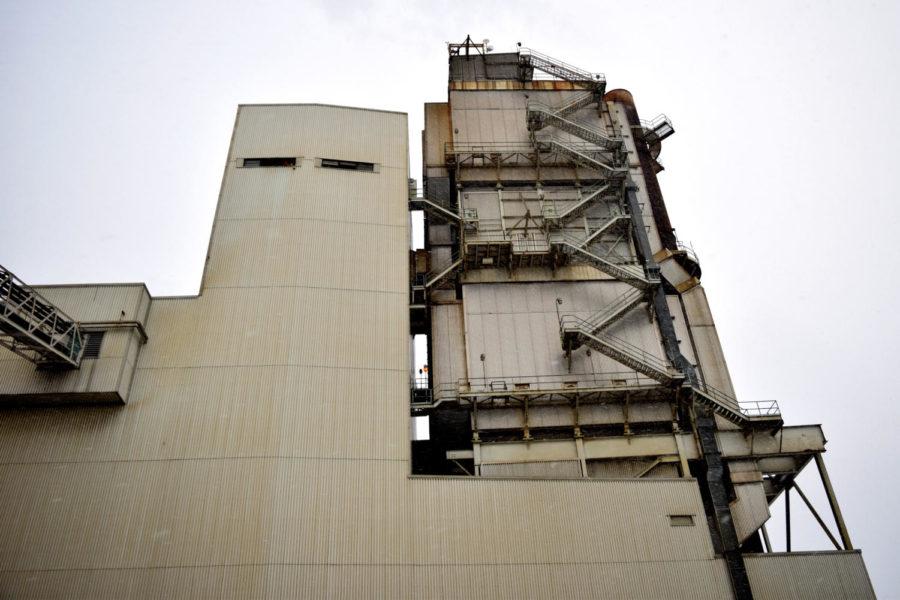New gas boilers will lower costs, diversify energy sources for Iowa State
The Ames power plant on Feb. 25.
March 10, 2015
Using both coal and natural gas will help keep costs low for the ISU and Ames community.
It is best to be neither 100 percent gas nor coal in order to avoid market fluctuation, according to a case study done by Market Realist.
Iowa State has three 80-ton natural gas boilers that were delivered to the on-campus power plant, in addition to the two coal boilers. The university plans to run two of the natural gas boilers and one of the coal boilers at a time in efforts to keep costs lower.
Natural gas has the one-up on coal because it is more eco-friendly to burn. In the Ames community, more people are switching to natural gas because of the low cost and environmental impact.
The city of Ames is reducing its carbon footprint by burning trash along with the fuel in methods to help the city recycle, said Don Kom, Ames Electric Services director.
The burning of fossil fuels, such as coal, release a series of emissions, such as nitrogen oxide, carbon dioxide and sulfur dioxide, he said. The transition to natural gas for three of the boilers will help reduce the emissions by 48,000 tons a year at the university.
However, where the natural gas can help the environment, it can hurt the job market, Kom said.
“It takes fewer people with natural gas,” Kom said. “Where we might have needed three people to burn coal before, we will only need one to burn natural gas.”
The efficiency of natural gas requires fewer workers, so the city will have more money to use in other electrical service needs.
“Natural gas is more expensive starting out, but will be cheaper for the consumer in the long run,” Kom said.
Natural gas is at one of the lowest prices it has been in the last 10 years, having barely touched $4 in millions of British Thermal Units, the measurement of cost to heat. After the recession in 2008, prices were nearly $16 million BTU, according to a research study done by Ingrid Pan.
Since prices are under $4, now is a good time to switch to natural gas. When the prices rise again, using coal may better benefit the budget.
The burning of both natural gas and coal in smaller amounts, rather than burning 100 percent of either one, will save money for the city and university, as well as reduce environmentally harmful emissions, Kom said.







